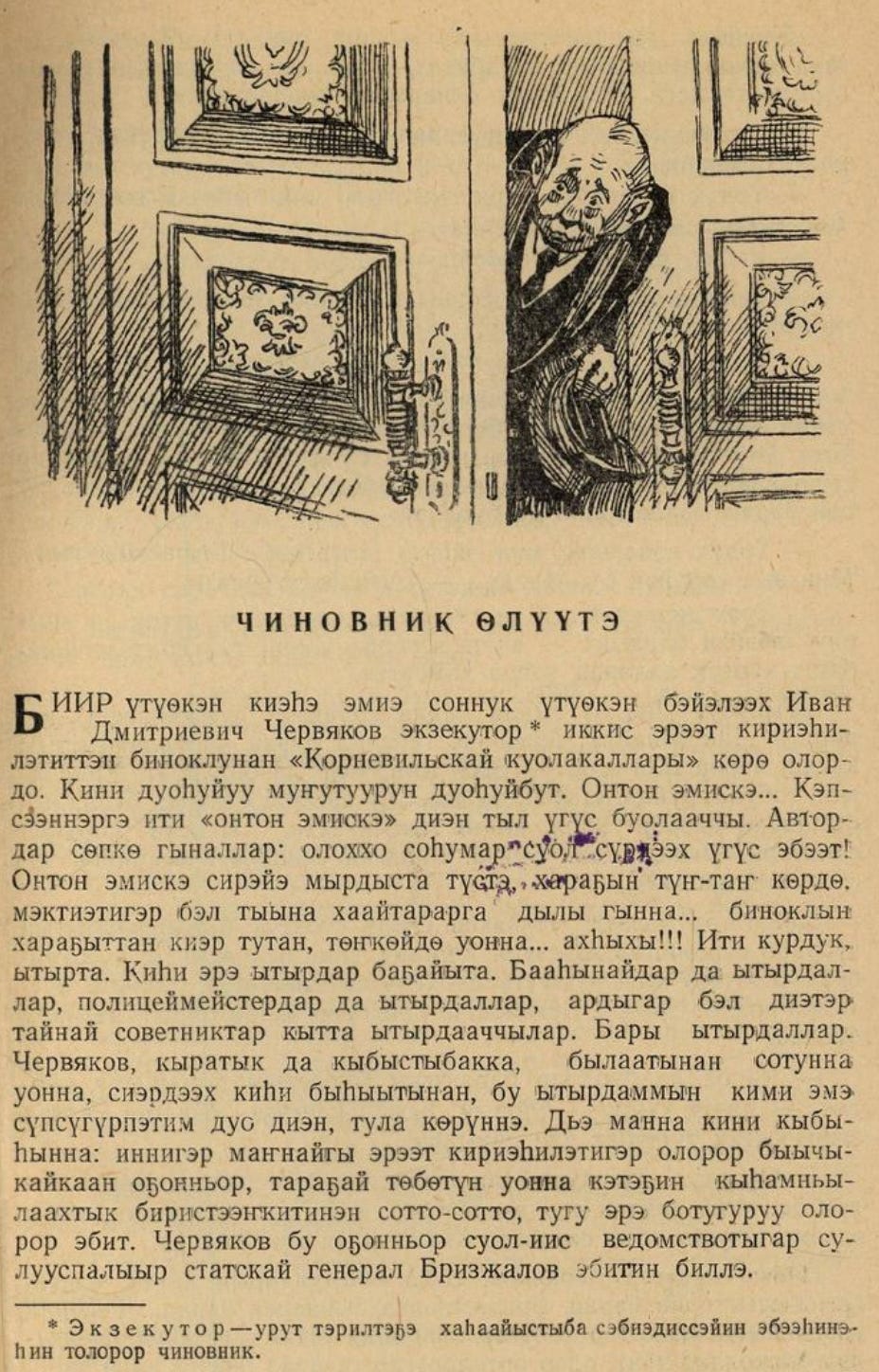For Unconditional Surrender
Notes on Chekhov, Ukraine, War, Pacifism, the Death of “Cinema”, and the Emerging Global Technocratic Surveillance Regime
1.
A memorable short story by Anton Chekhov entitled “Death of a Functionary” (1885) tells us of a lowly chinovnik named Chervyakov (chervyak means “worm”) who goes out of an evening to enjoy some light theater. He sits in the second row, and just before him, in the front row, he sees the bald old head of a higher-ranked functionary from a neighboring office, the Councillor of State Brizzhalov.
At some point Chervyakov sneezes, and a drop of spittle lands on the elderly eminence’s pate. He apologizes profusely, which Brizzhalov readily accepts. But Chervyakov discerns something in the latter’s face that belies the assurance that all is forgiven. And so after the show he accosts him again, and tells him it was unintentional, and again the old man accepts the apology, but more gruffly than before. Chervyakov worries all night, and decides to pay Brizzhalov a visit the next day at his office. The councillor of state again accepts the apology, but with even more disdain. Chervyakov makes himself sick with worry, and so returns yet again for another apology the following day, at which point Councillor of State Brizzhalov tells him something like “Get out of my sight you groveling non-entity!” And so Chervyakov slinks home, and dies, and that’s the end.
I have been rereading Chekhov’s stories recently only because I found a serviceable edition of them in Sakha translation, published in Yakutsk in 1960, which I can conveniently study while consulting the original as needed. Ordinarily I prefer not to learn languages by reading literature translated into them from some other language, but there is just so much great Russian literature available in all the minority languages of the USSR that it seems stubborn to insist on avoiding it entirely. One thing that has struck me, on this reading, is just how clear the text is. I am not generally fluent enough to read grown-up literature in Sakha, page after page, with only occasional glances at the original text or at a dictionary. But with Chekhov I can. What explains this? I knew “Death of a Functionary” vaguely from years ago, and there’s nothing like prior familiarity to give a person the impression that they are spontaneously understanding a piece of writing. But it has been so painless to read that I don’t think that’s the whole story. I think it also has something to do with the fact that the world Chekhov describes is itself intimately familiar to me. He speaks a “language” I can understand, in the sense that he has the same “repères”, in the sense that he is describing the sort of human experience —unlike that of, say, a medieval Yakut warlord— that I know directly.
This short story is, obviously, a subversive one — at least to anyone who knows how to read, which does not include your average censor. It says: your hierarchies are a farce, and what’s more, they destroy people’s lives. So why would the Soviet authorities believe it was a good idea to publish this work in translation into the minority languages of the domain, mostly as part of a campaign to boost the literacy of people who were destined to live out their lives laboring away on collective dairy farms? Clearly, when the censors read Chekhov they imagined his subversion extended only to the tsarist regime and its administrative apparatus, even if it is plain, with a bit of historical distance, that it applies just as well to, say, the functionary system of French higher education (my own system), or to the necessarily unequal division of labor on a Soviet kolkhoz (the system of the translation’s intended readership).
We tell ourselves different things, as Wittgenstein said. But anyone caught up in the administrative apparatus of the modern world, in any of its local or regional inflections, as a chinovnik, as a fonctionnaire, as a “hero milker”, is always at risk of becoming another Chervyakov. This prospect becomes all the more menacing when Brizzhalov transforms into a robot, as he has by now done for most of us today. Our new AI Brizzhalovs are so vigilant about watching out for “sneezes”, for any sudden irruptions of human weakness, as well as any sympathetic treatment of such weakness, that they now threaten even to prevent the appearance of any future Chekhovs, who, throughout the darkest moments of the 19th and 20th centuries, at least, had been among the small but still perceptible reassurances of the survival of a faint signal of enduring human freedom.
2.
What I wanted to talk about today was not in fact the dreariness and indignity of the workplace, but the even drearier matter of war. Allow me therefore at least to begin to make explicit the connection between these two.




